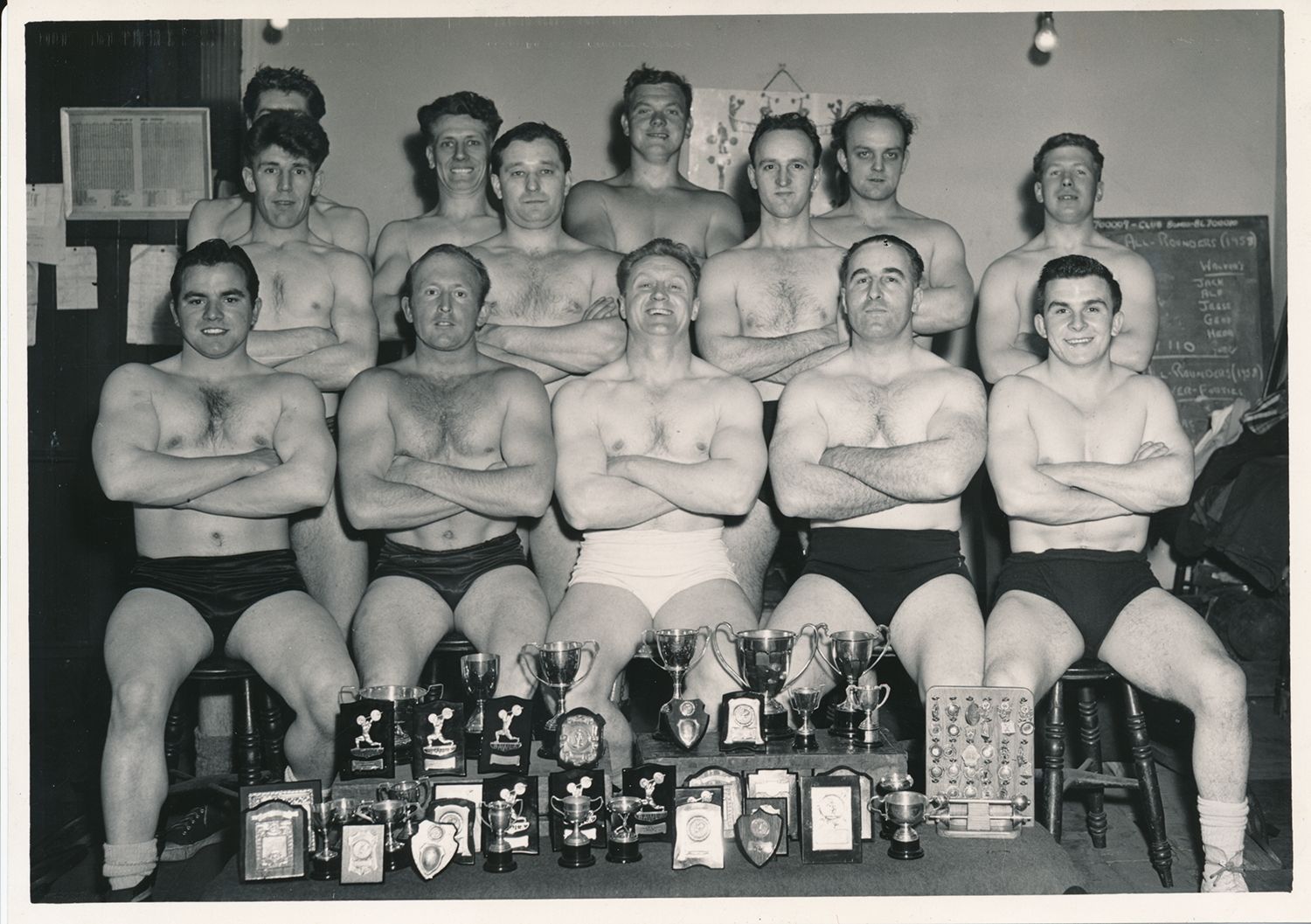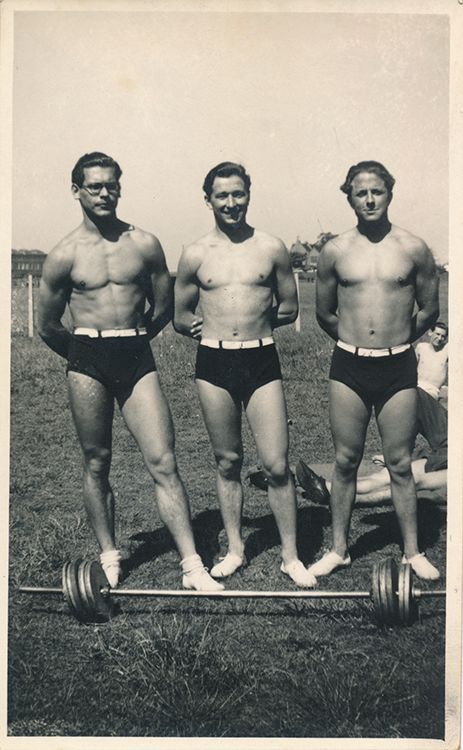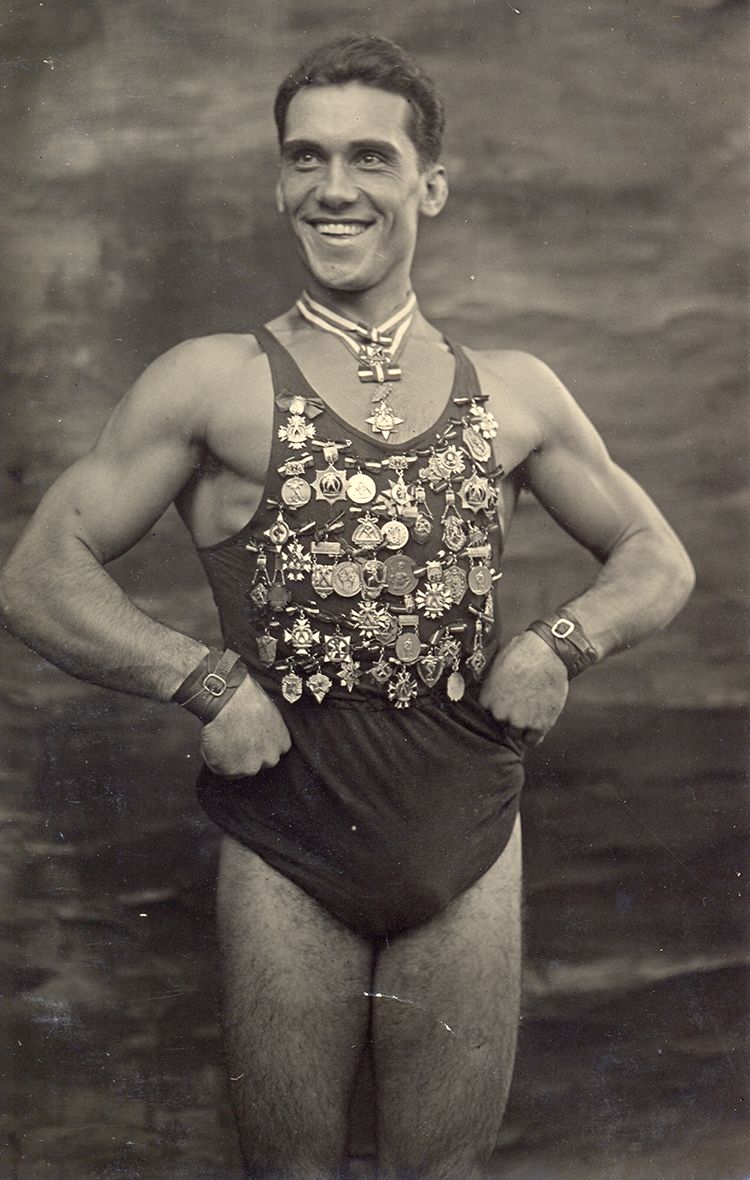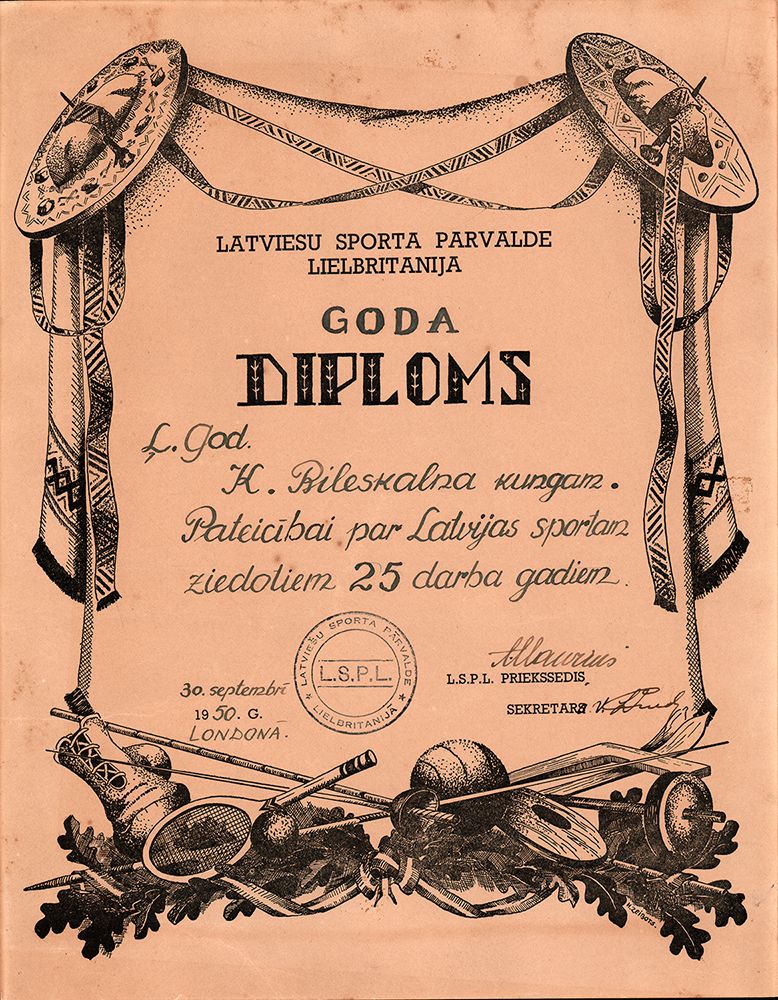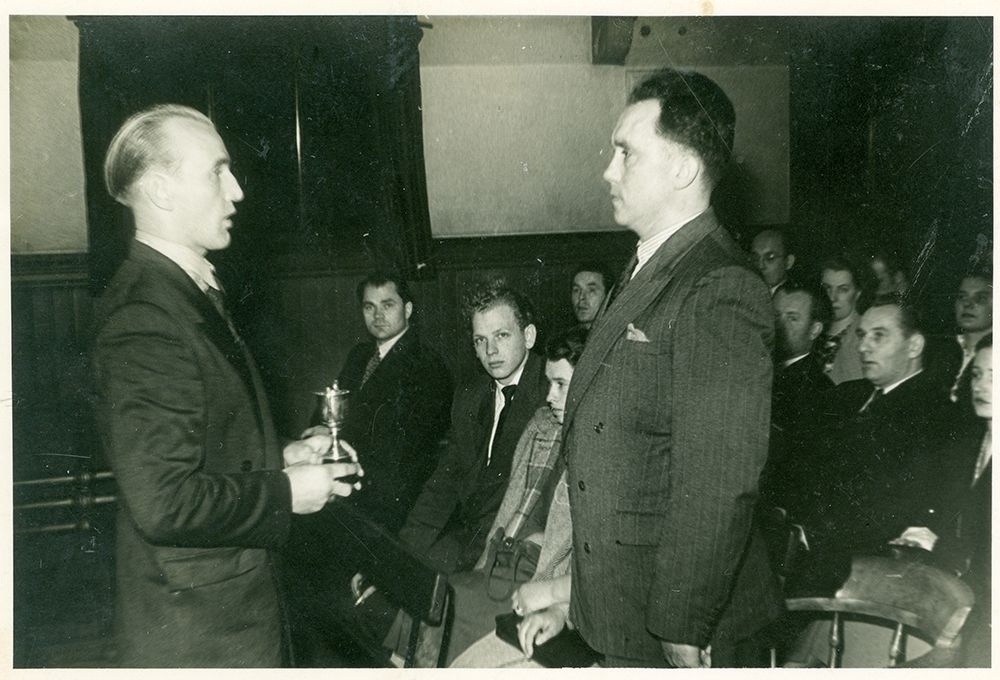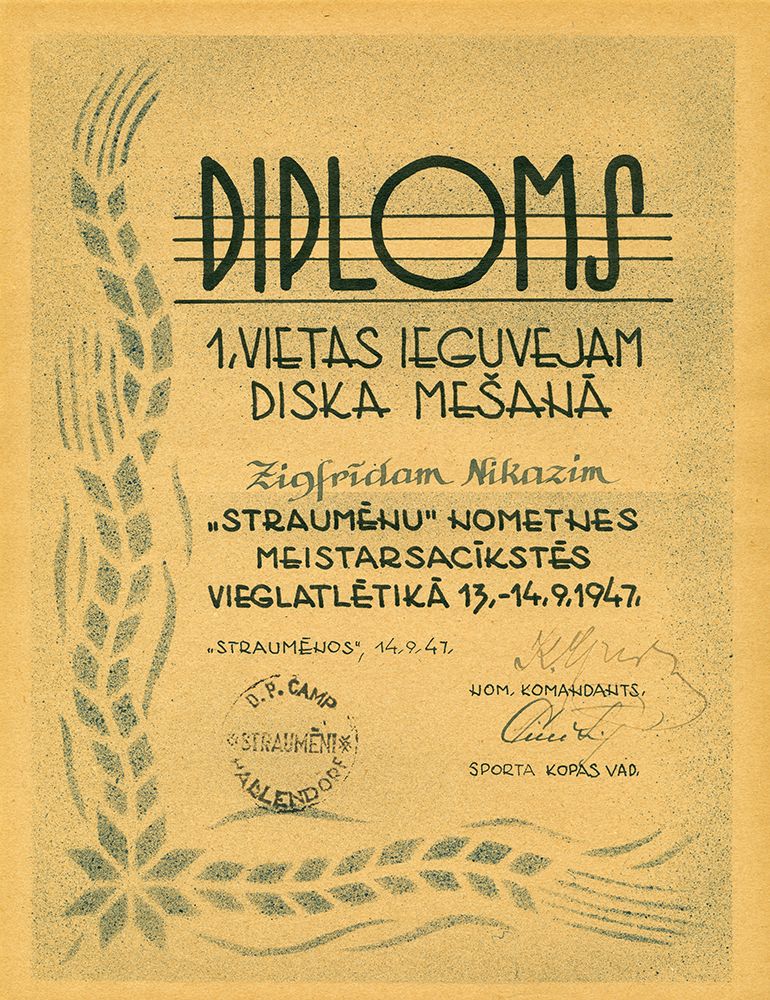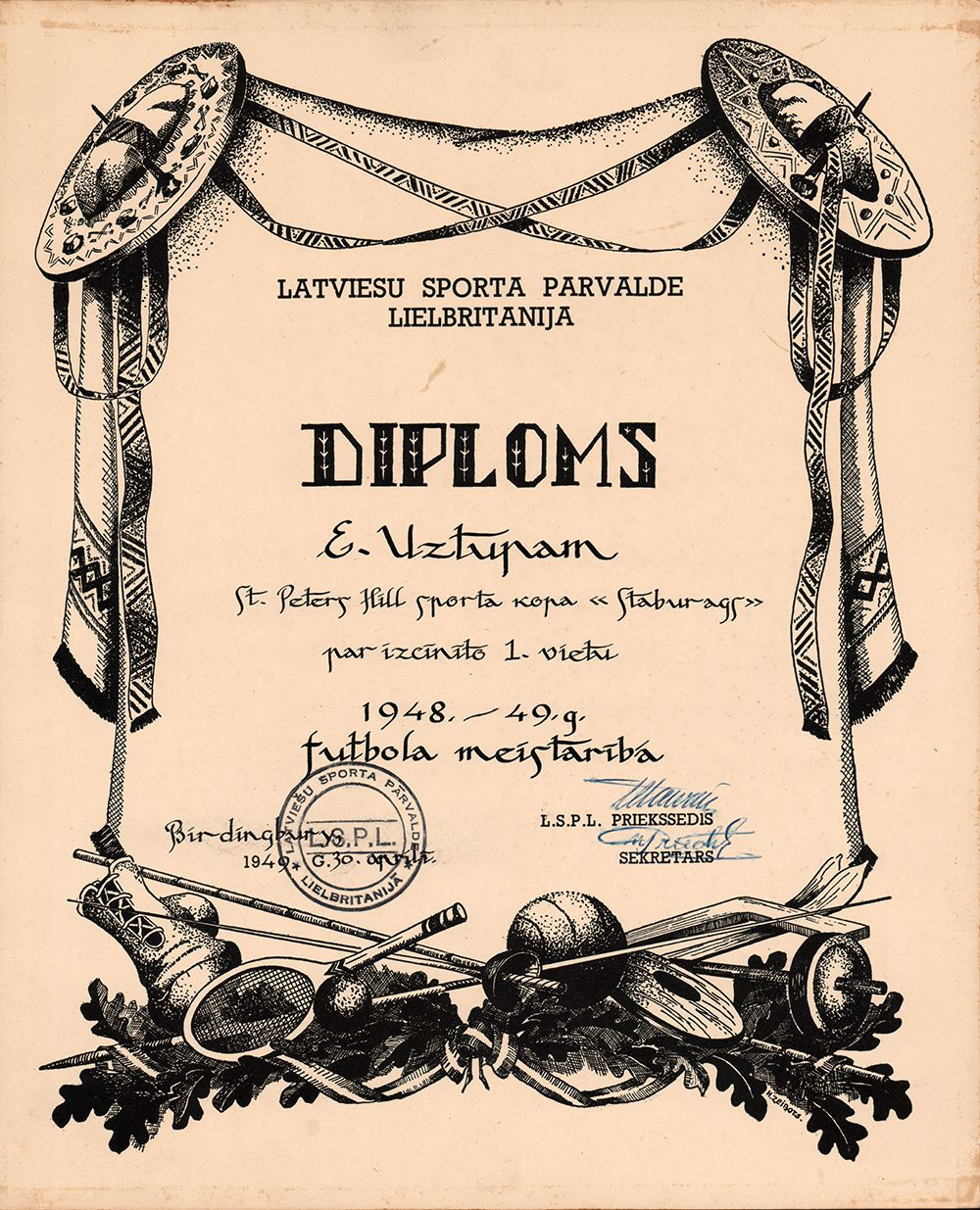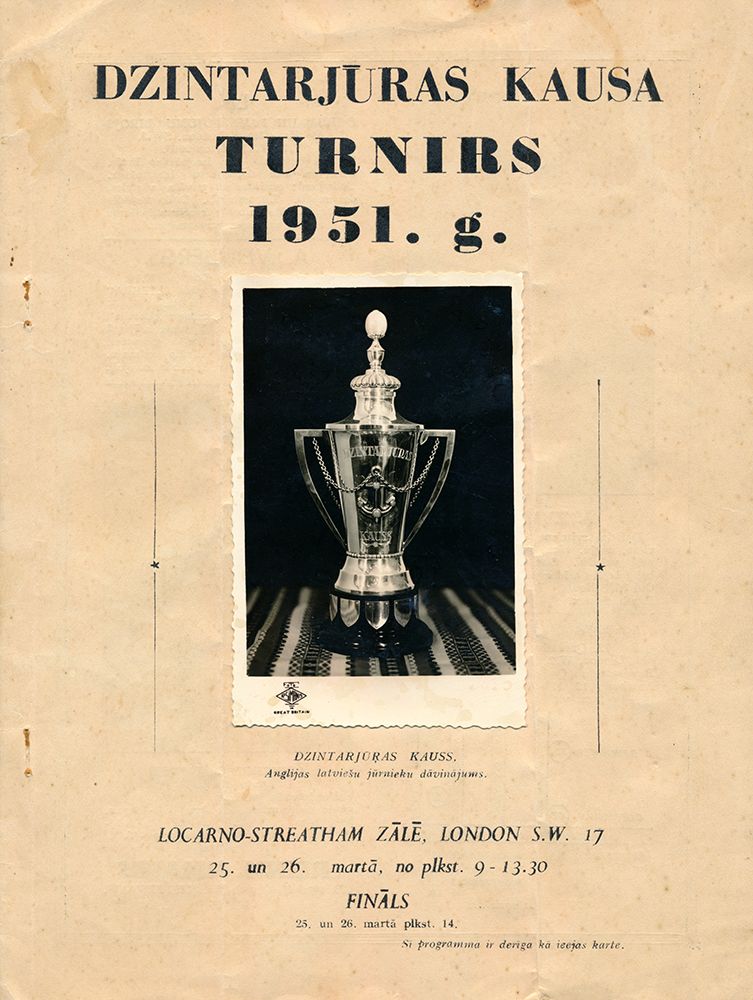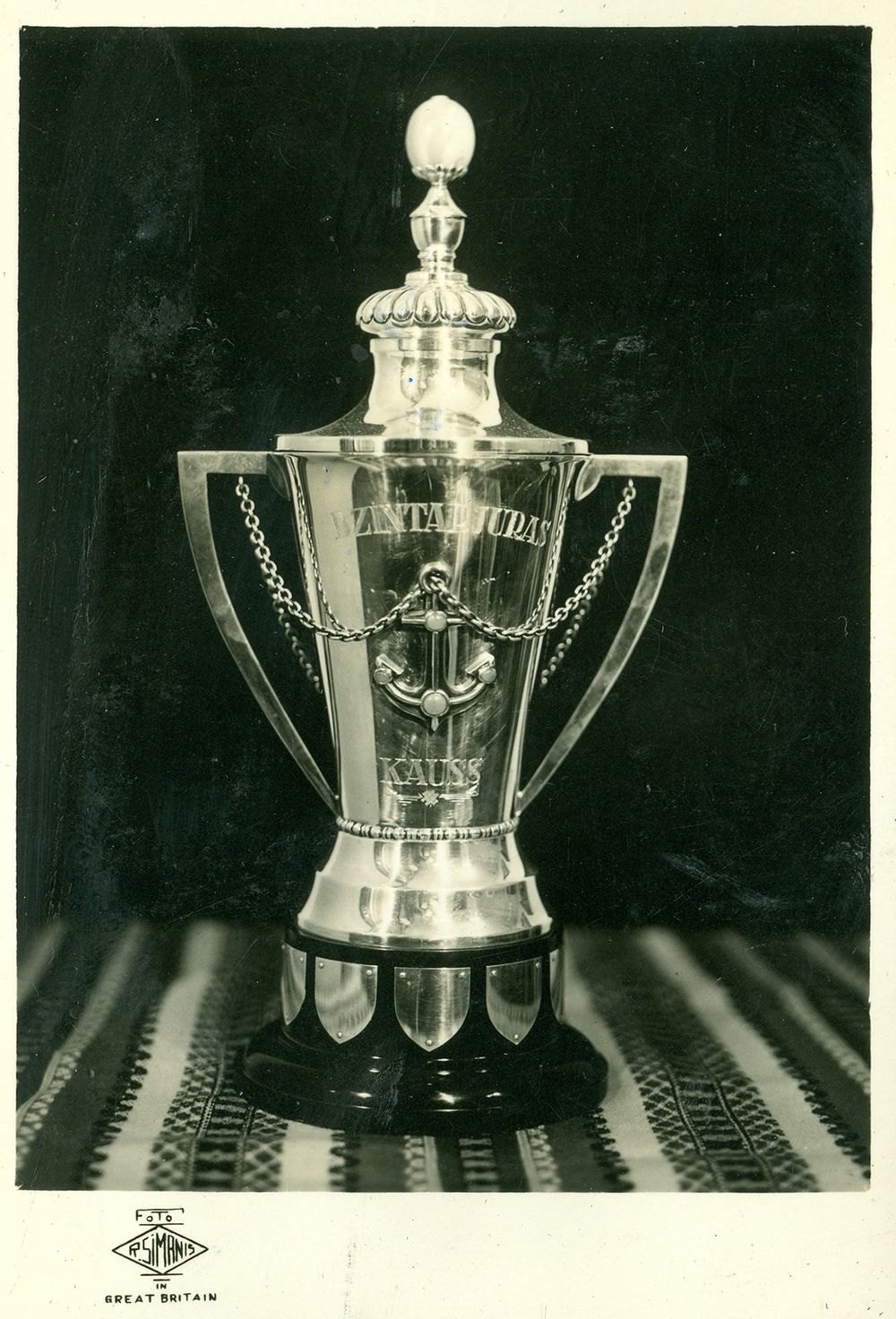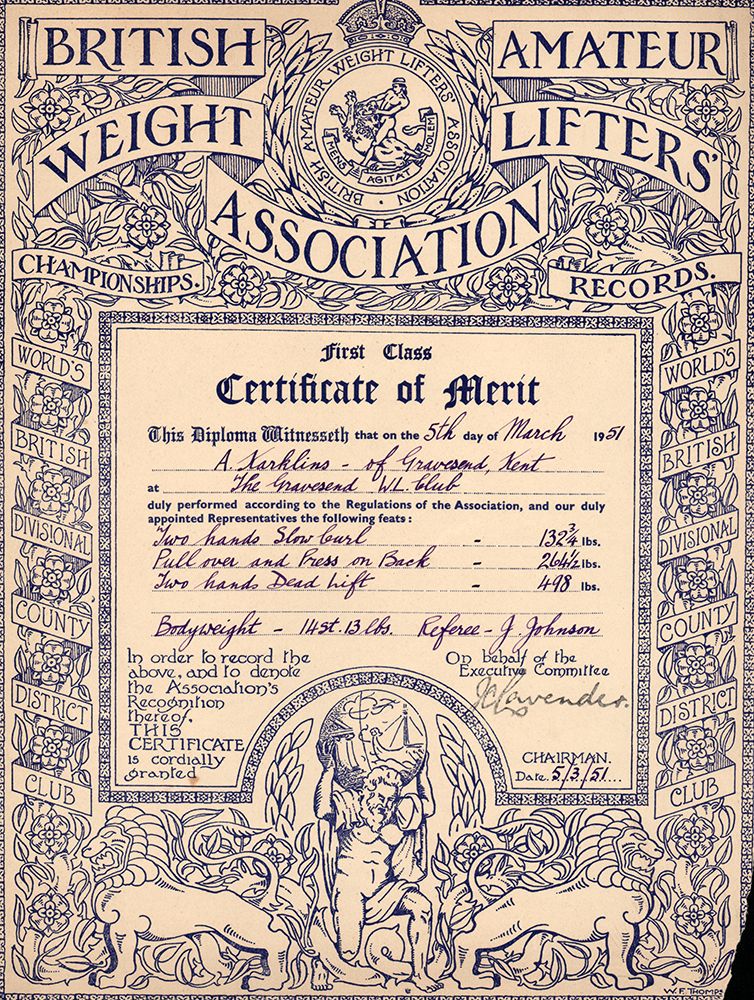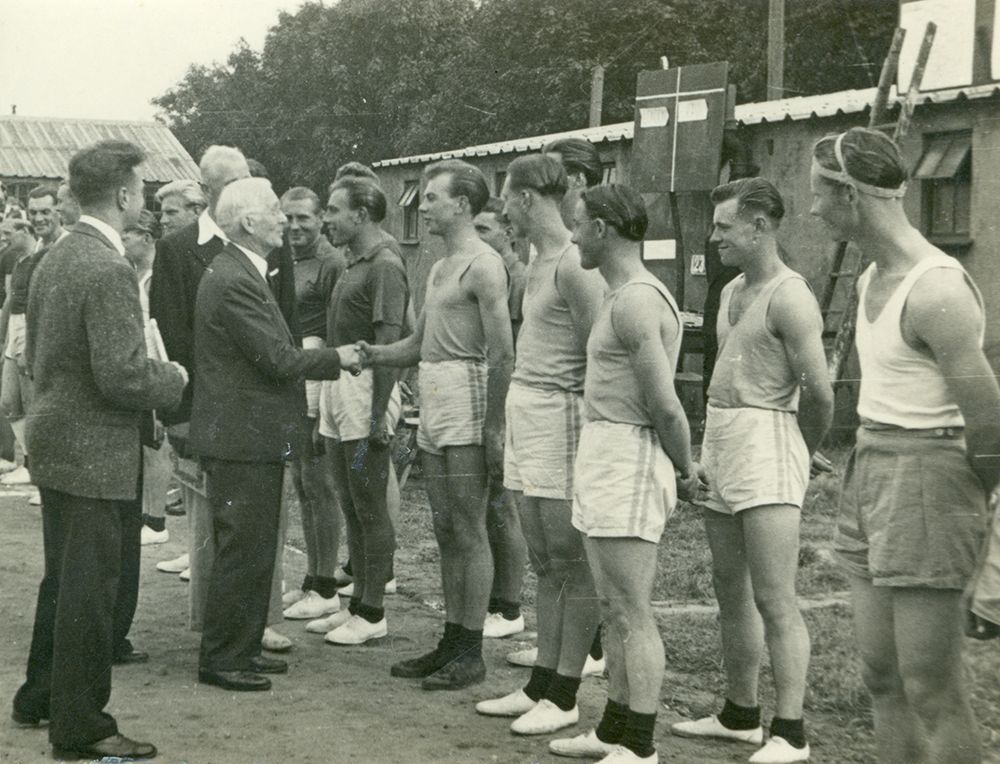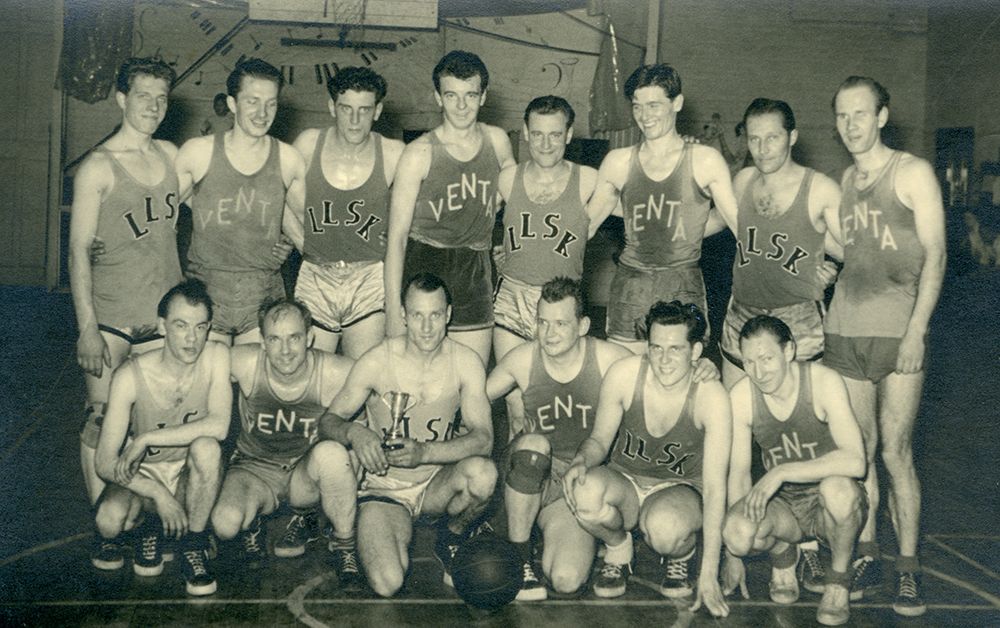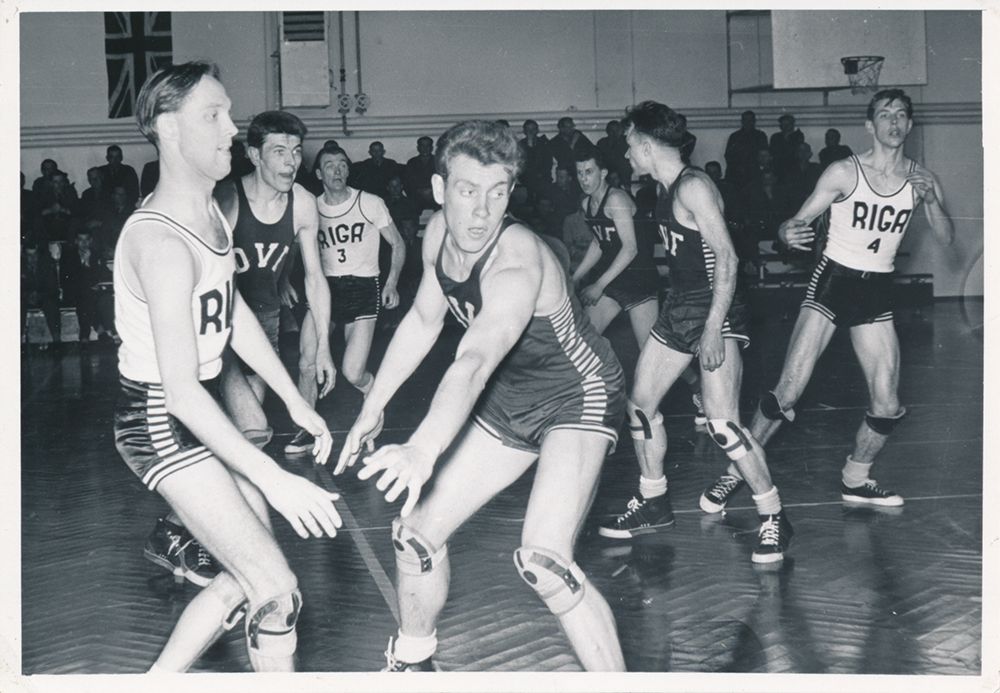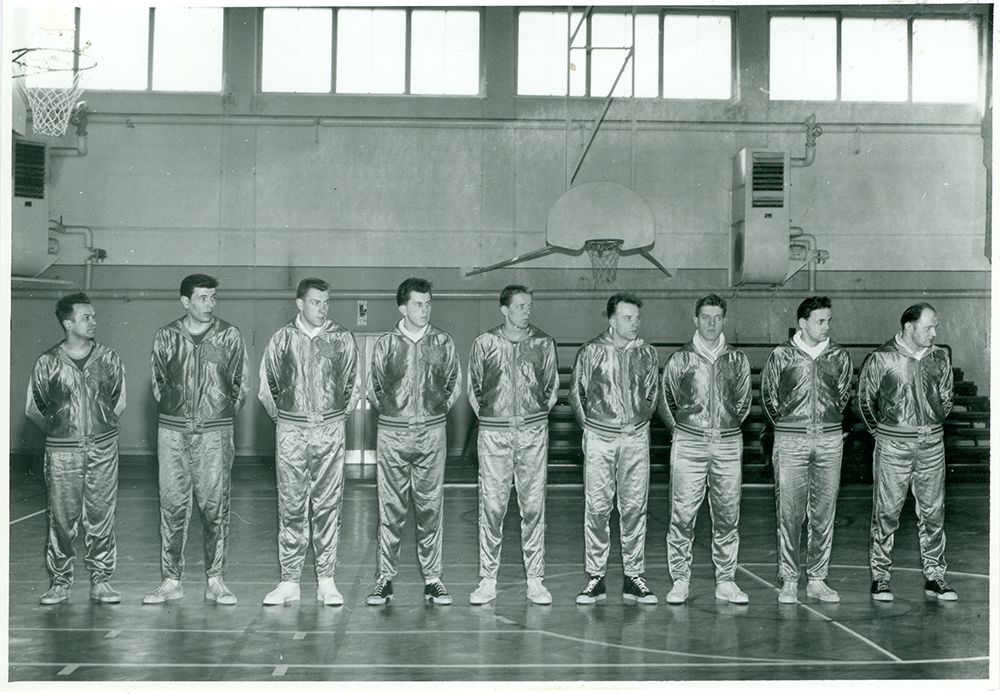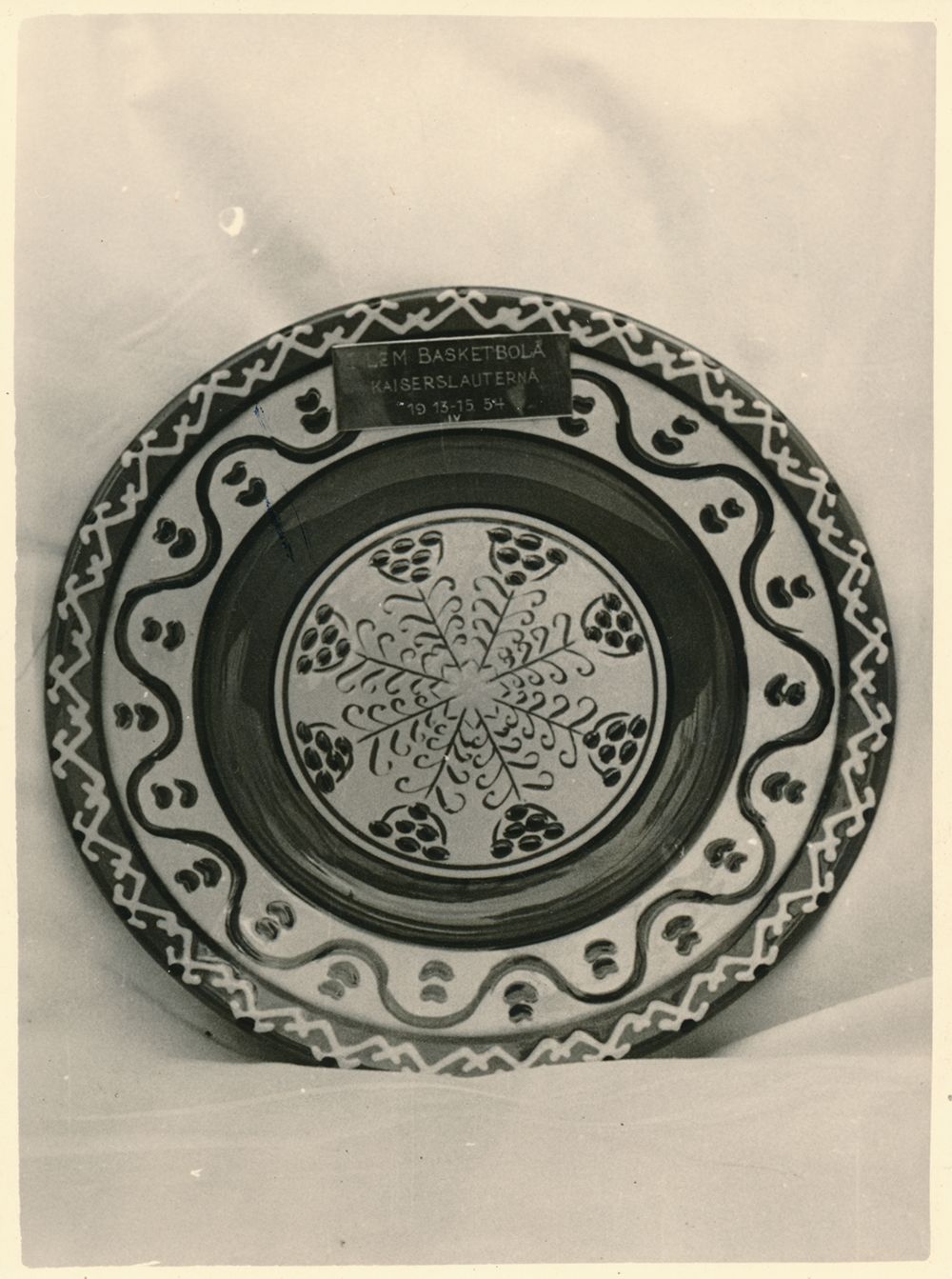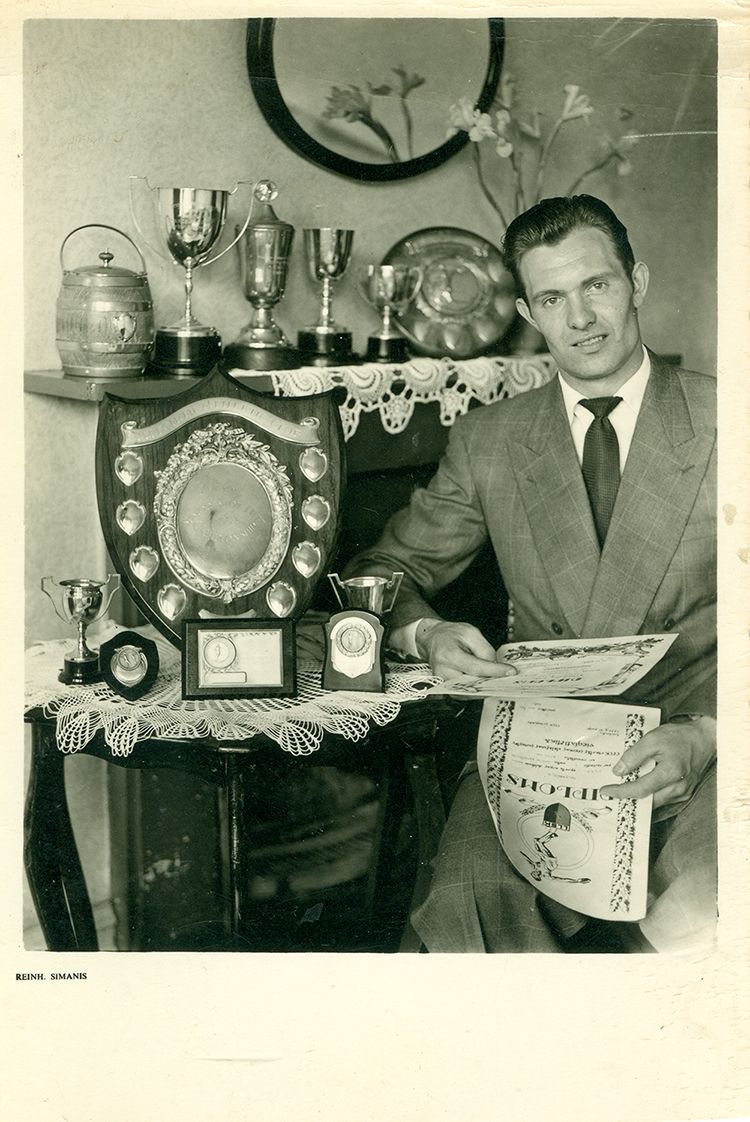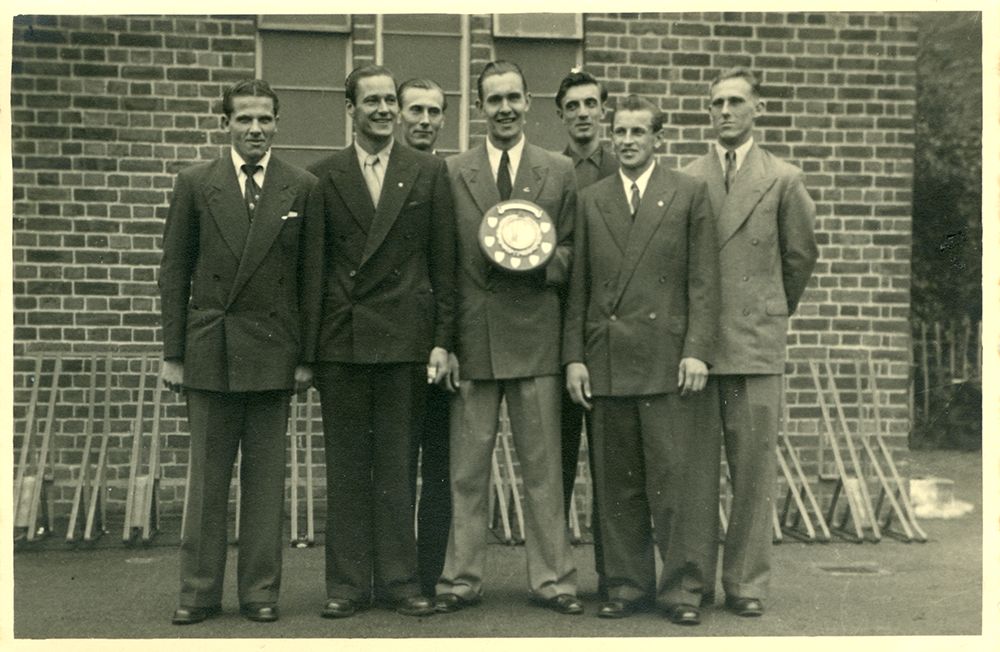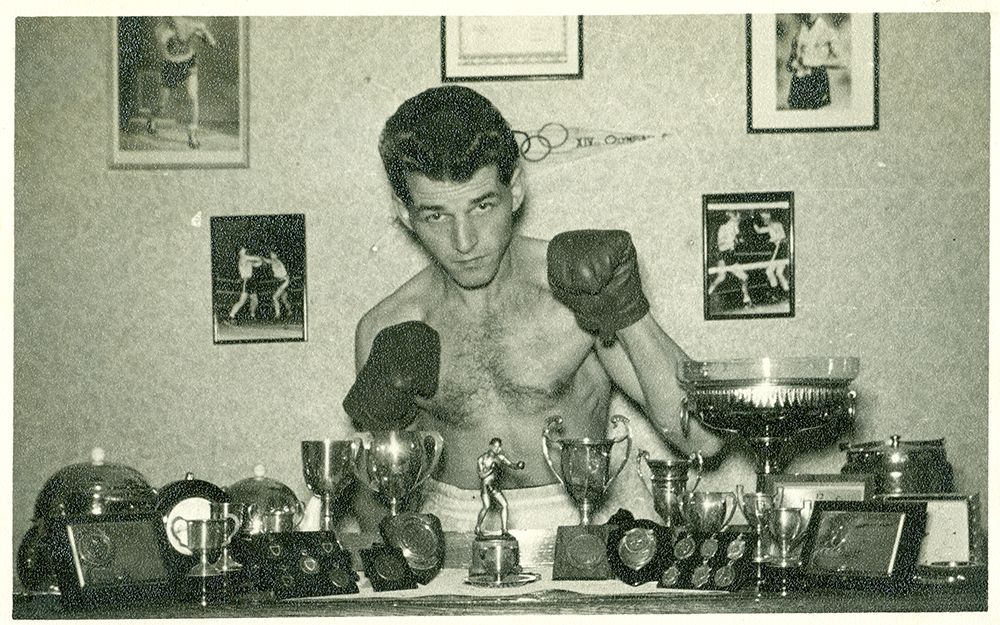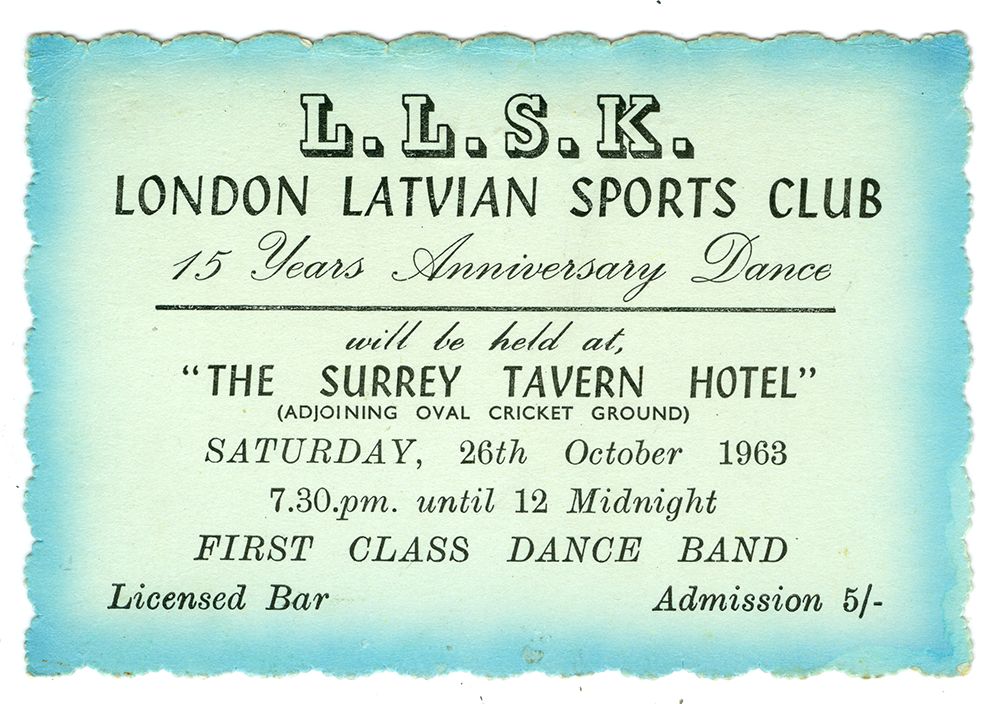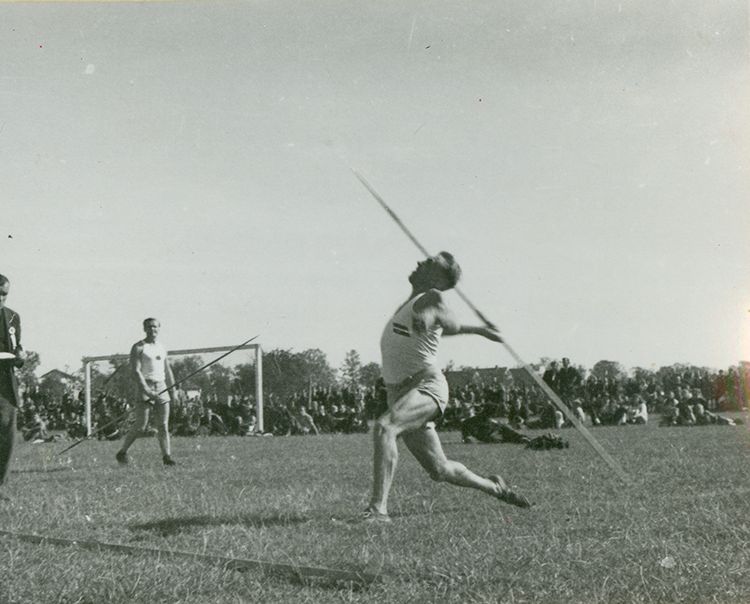Among the 16,000 Latvian refugees who arrived in Britain towards the end of the 1940s were a number of, well known Latvian athletes. These included Jānis Stendzenieks, a javelin thrower, who won the Great Britain title, and hoped he might be able to participate in the 1948 Olympics taking place in London. But this was not to be, as his status was a lowly “displaced person”.
By 1947 sports groups began to spring up, in London, Birdingbury, Bitteswell, Lincoln, Coventry, Bradford, Leicester and other places, taking Latvian place-names or historical events as names. That same year the Society of Latvians created a sports sub-group to co-ordinate sports activity in the displaced persons’ camps and to help Latvian athletes integrate into English sports clubs. The Latvian Welfare Fund also established its sports sub-group as well as a basketball team that achieved good results playing with its host country’s teams. In 1948 Bitteswell organised the first Latvian sporting competition attracting 150 participants playing basketball and volleyball. The first athletics competition among Latvian athletes took place on 3rd October 1948, with 56 participants. In 1949 a nationwide umbrella organisation for Latvian sports was set up, which by 1950 oversaw 712 athletes, many of whom participated in competitions against English athletes. However, in the early 1950s many Latvian athletes emigrated to the United States or Canada, but sporting activities continued in England, the most active under the Latvian Welfare Fund's wing, this organisation completely taking over the co-ordination of Latvian sports in the 1960s. The main events were: running (various distances), long-jump, high-jump, javelin, discus and hammer throwing, and shot putting. Competitive events took place at the Latvian property, “Mūsmājas”, near Coventry and later at “Straumēni”, near Rugby.
Football was popular in the early days with championship events organised in 1949. The second event, however, had only 2 teams participating, and as the displaced persons’ camps were closed football activities ceased.
For many years the most popular sport among Britain’s Latvians was basketball. Two Latvian teams took part in the 1948 London basketball competition, and in 1949 the London Latvian team was allowed to participate in the national championship event in London, ultimately winning the English National Cup. During the 1950/51 season, sailors on boats sailing under the English flag donated funds for Latvian basketball teams to participate in the Amber Sea competition, the first winner to take this Cup being the London Latvian basketball team. The Wetherby Cup must also be mentioned: established in 1948 by the Parkgate camp’s sports club, competitive events took place 9 times; the Latvian Welfare Fund’s basketball team won it three times and thus were able to keep the Cup. Gradually, basketball died out among the Latvians as the older players retired from sporting events. In 1971, the only team remaining was part of the London Latvian sports club, but already other nationalities were the majority players in this club.
Volleyball was also a popular sport with about 20 teams participating in regular competitive events in the early years. Only 6 teams were left by 1965 and in 1976 only the Coventry team remained, and it was registered with the English Volleyball Association.
Chess was a very important sport for the Latvians, with the most active centres in Bradford, Birmingham, Coventry and Doncaster. Championship events were organised already in 1949 for individuals, teams and speed chess sessions.
In the 1960s, the Latvian Welfare Fund organised biannual shooting championships attracting many participants. These took place at the Thumscoe shooting range near Doncaster, with both individual and team competitions, using low calibre rifles or pistols, for different age groups, and for both men and women. These continued until the late 1990s with participants coming mainly from Doncaster, Derby, Chesterfield and Leicester.
Table tennis was popular, particularly among younger people, with annual competitions organised for English Latvians. It was a popular activity in social clubs as well as schools. Darts were also a popular activity.
The Latvians brought with them the game of novuss (closely related to pocket billiards), although it was only in 1964 that the first official competitive events in Britain took place in Mansfield. The game took root at Latvian centres in Almeley, Leicester, Mansfield and Nottingham, where some very able teams developed.
The Latvian Welfare Fund organised festivities regularly from 1962 and alongside cultural events sporting events also took place. These included volleyball, chess, table tennis, novuss, darts. Athletics competitions also took place occasionally. In later years, fishing was also included, right up to 2003. The most active groups were in Leicester, Chesterfield, Doncaster, Bradford, “Straumēni” (from 1976), Huddersfield, Nottingham, and Mansfield.
Particular mention must be made of the speed-walker, Kārlis Āboliņš, who took first place, four times, in the 100-mile speed-walking event, from Leicester to Skegness. This was in 1964, 1966, 1968 and 1970. In 1970, he recorded the best time in a 24-hour speed-walking event in France - 205.16 km. In 1991, at the age of 65, he participated in a 3-day speed-walking event in Latvia - Riga to Sigulda to Cēsis, taking first place in his age group.



